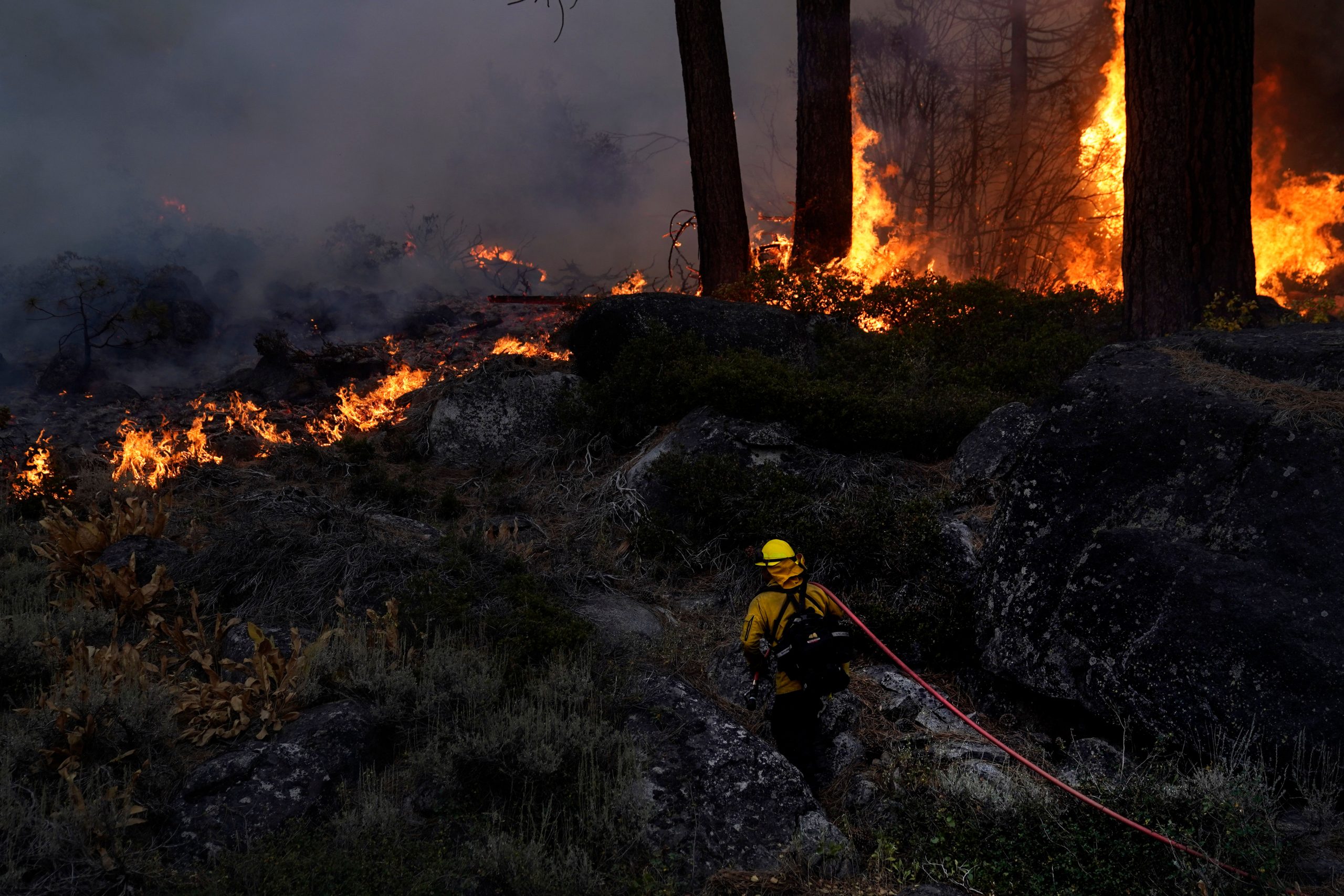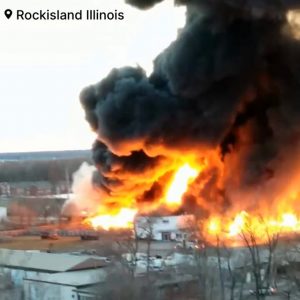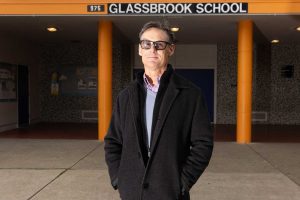Climatic conditions came into the assistance of firefighters working to contain the Caldor Fire near Lake Tahoe resort communities in California, according to US media reports citing authorities.
The city of South Lake Tahoe, which has been evacuated of nearly 22,000 residents, did not see any substantial fire activity since Thursday, according to officials present at the site.
The nearly 333-square-mile (862-square-kilometer) fire was not making any significant advances and was not challenging containment lines in long sections of its perimeter, but Ernst said “the risk is still out there” with some areas that remained hot.
Authorities seem to be gaining a grip on the Caldor Fire in California, which has been raging for weeks, as the blaze was limited to the long sections of the containment lines perimeter.
However, Operations Section Chief Tim Ernst said that “the risk is still out there” while also adding that fire officials were cautiously optimistic thanks to “a lot of hard work” by firefighters over the past two weeks, according to reports from Associated Press.
Crews were restoring utility services, knocking down hazardous trees and putting out smoldering hot spots to prepare certain areas for repopulation, according to reports.
Also Read: Years later, California voters still wait on water projects
However, the timeline for allowing residents back to their home remains unclear, said Captian Parker Wilbourn, a spokesman for the California Department of Forestry and Fire Protection.
“At this point, we don’t know. We’re doing everything we can to mop up the fire and clean up areas that need to be cleaned up,” Wilbourn said, according to reports from Associated Press.
United States Forest Service administrator Dean Gould said, “Very positive trends with regards to weather. That’s huge for us. Let’s take full advantage of it while we have this window.”
According to reports from Associated Press, the wildfire has dealt a major blow to an economy that heavily depends on tourism and was starting to rebound this summer from pandemic shutdowns.
(With AP inputs)







